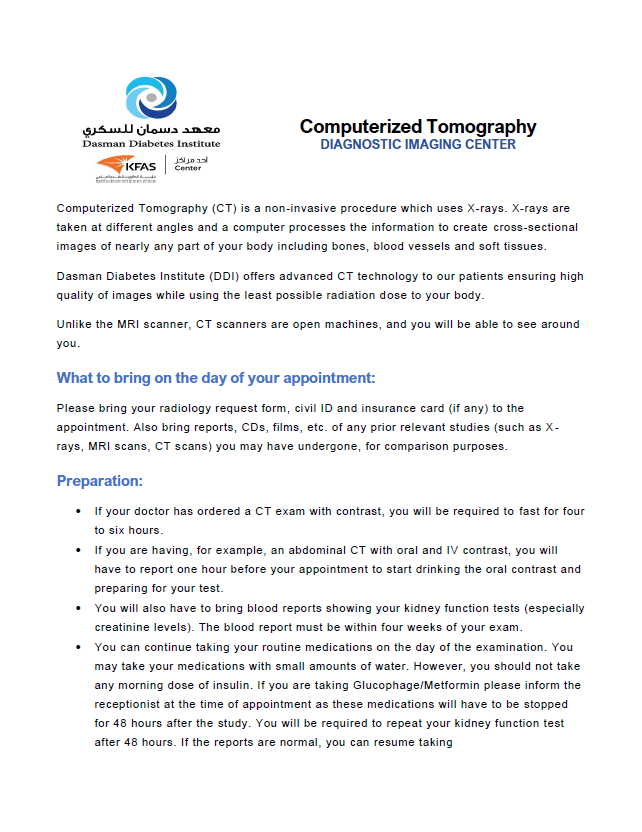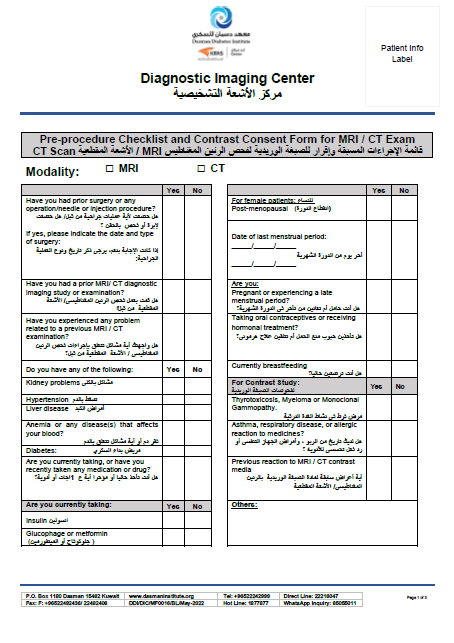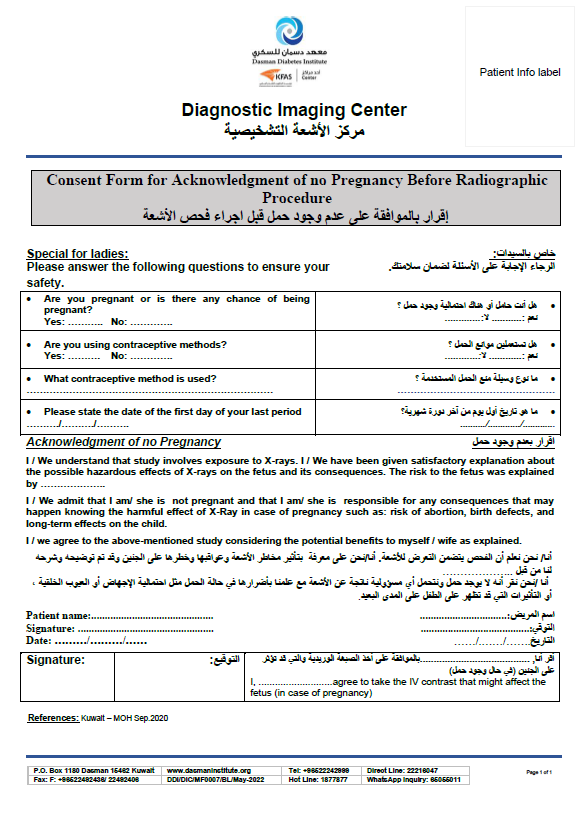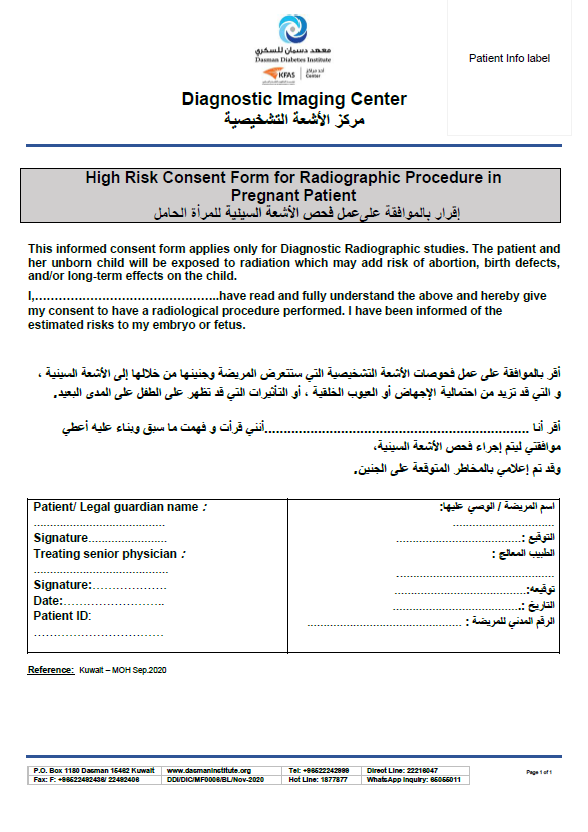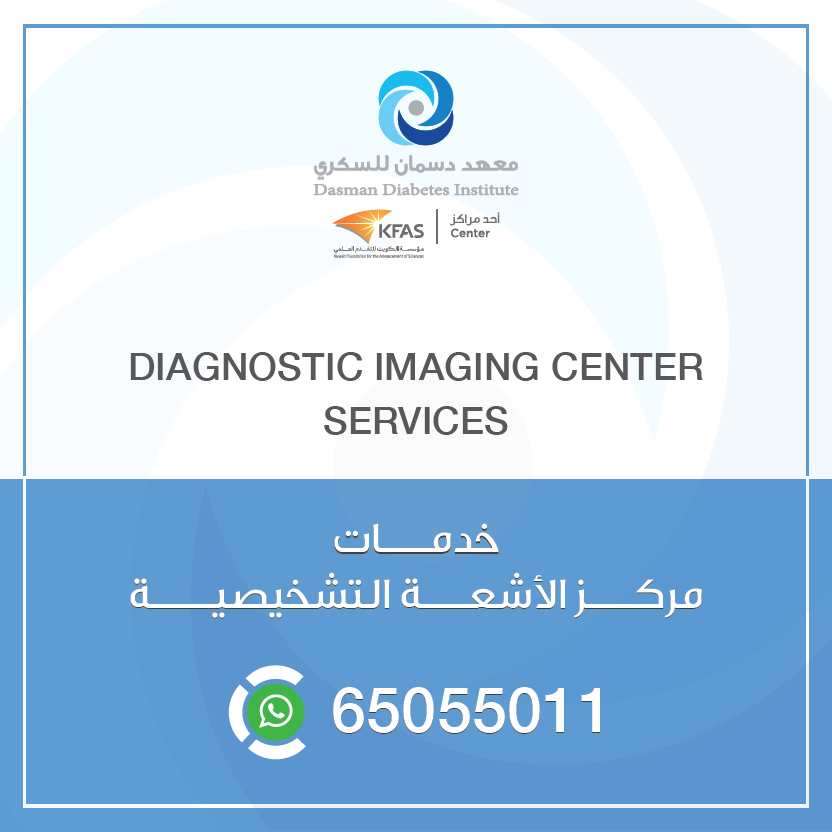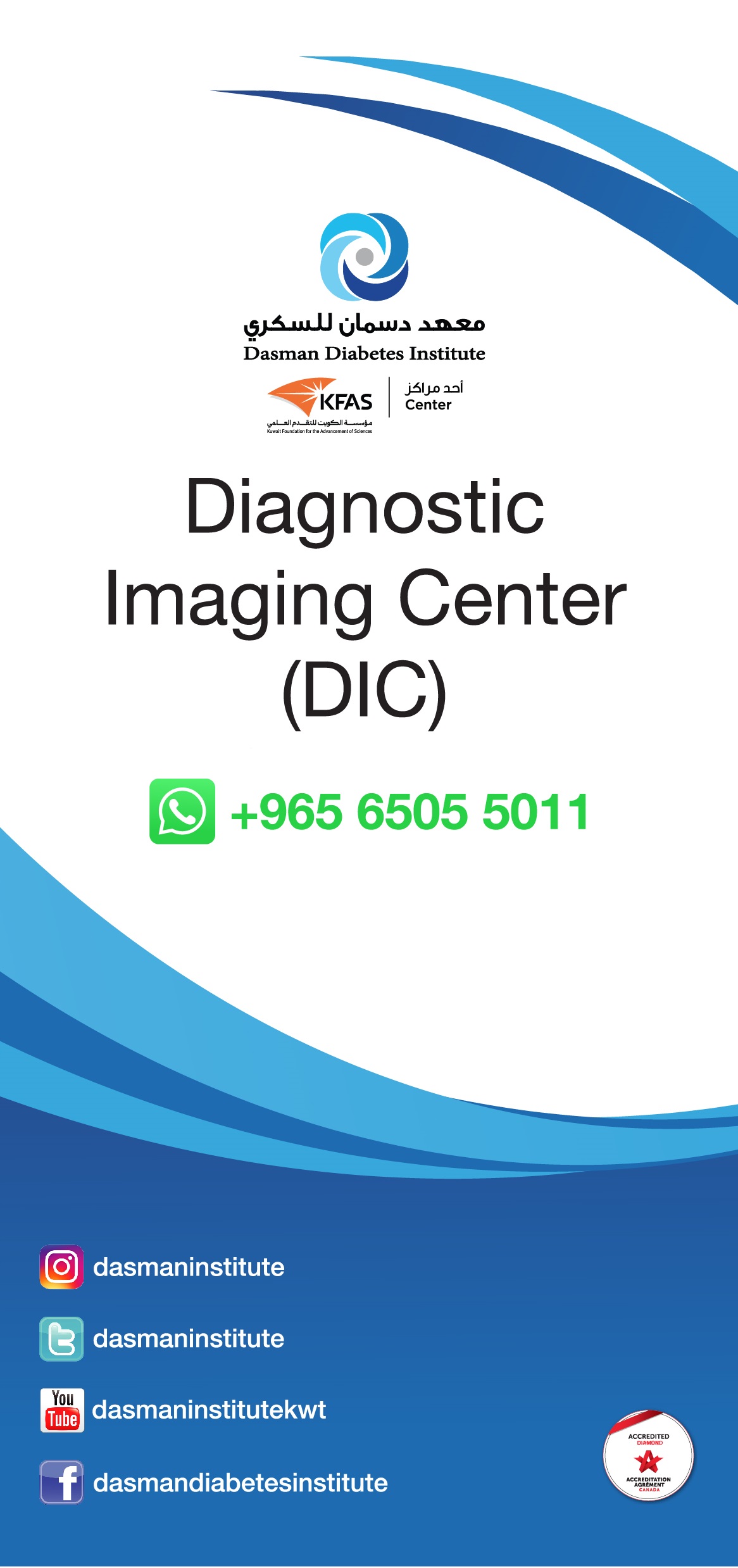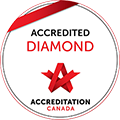Computerized Tomography (CT) is a non-invasive procedure which uses X-rays. X-rays are taken at different angles and a computer processes the information to create cross-sectional images of nearly any part of your body including bones, blood vessels and soft tissues.
Dasman Diabetes Institute (DDI) offers advanced CT technology to our patients ensuring high quality of images while using the least possible radiation dose to your body.
Unlike the MRI scanner, CT scanners are open machines, and you will be able to see around you.
What to bring on the day of your appointment
Please bring your radiology request form, civil ID and insurance card (if any) to the appointment. Also bring reports, CDs, films, etc. of any prior relevant studies (such as X-rays, MRI scans, CT scans) you may have undergone, for comparison purposes.
Preparation
- If your doctor has ordered a CT exam with contrast, you will be required to fast for four to six hours.
- If you are having, for example, an abdominal CT with oral and IV contrast, you will have to report one hour before your appointment to start drinking the oral contrast and preparing for your test.
- You will also have to bring blood reports showing your kidney function tests (especially creatinine levels). The blood report must be within four weeks of your exam.
- You can continue taking your routine medications on the day of the examination. You may take your medications with small amounts of water. However, you should not take any morning dose of insulin. If you are taking Glucophage/Metformin please inform the receptionist at the time of appointment as these medications will have to be stopped for 48 hours after the study. You will be required to repeat your kidney function test after 48 hours. If the reports are normal, you can resume taking Glucophage/Metformin. If the reports are abnormal, you should contact your referring doctor.
- If you have known allergies to iodinated CT contrast or any other medications, it is important to clearly notify the radiology personnel about it. In case of allergies to medications, you will have to go to your doctor to get necessary pre-medication before doing your exam with contrast.
- In patients who have asthma, the contrast study will be performed only if the condition is controlled by appropriate medication to ensure patient safety.
- If there is any possibility of pregnancy, please talk to your doctor and inform the reception at the time of appointment. To avoid exposure to the fetus, your doctor may recommend another type of exam like an ultrasound or an MRI.
On the day of the appointment
- Please arrive at the Diagnostic Imaging Reception at least 30 minutes before your test. This allows plenty of time for the registration process including cashier stamp. Failing to attend within 15 minutes of the given appointment time will unfortunately lead to its cancellation.
- Parent or guardian of patient younger than 16 years of age must accompany the patient.
- Kindly inform the receptionist in case of any history of allergy, asthma, presence of any implants, surgeries involving any type of implants or suspicion of pregnancy. If there is any possibility of pregnancy, please talk to your doctor and inform the reception at the time of appointment.
- At the time of the examination, you may be asked to change into a gown. Lockers are provided to store your belongings for the duration of the scan. However, it is advisable that you leave all your valuables at home.
- All metallic objects on the body part being scanned such as piercings, jewelry, hairpins, coins, phones, wallets, watches, etc. will have to be removed prior to scanning. Necessary paperwork including consent forms will also be completed at this time.
- If you are having a CT scan with oral contrast, you will arrive an hour early and begin drinking the contrast given to you. The radiology nurse will insert a cannula for the iodinated contrast which will be injected into your veins during the scan. At the time of injection, you may experience a feeling of warmth in your body or a metallic taste in your mouth.
- You will enter the scan room under the supervision of a CT technologist. Depending on the constraints of the examination you are undergoing, you will enter the machine on a sliding table head-first or feet-first. Straps will be used as necessary to prevent movement of the body part. You will be given radiation shields as appropriate for the examination. Once you are inside the scan room, you will be able to easily communicate with the technologist via an intercom system.
- Generally, examinations take about 30 minutes to complete.
After your test
- On completion of your CT scan, you will be guided back to the dressing room. Following contrast studies, you will be asked to stay so that you can be monitored for some time. Also, it is recommended that you drink lots of fluids to remove the contrast from your body through your kidneys. In case of any reactions following the contrast, please report to your nearest Emergency Room and inform them that you have done a CT scan with contrast. For non-contrast exams, you can usually leave right after the procedure. In either case, you can resume normal activities after your examination.
- Our dedicated radiologists will interpret your CT images and make a report. You will be provided with a CD containing your CT images and a hard copy of your report.
- Please stop by the reception to get your dispatch card, which, you will produce along with your civil ID to receive your results. Our reports are generally dispatched between 12:00 – 2:30pm only on working days.
To print the instructions on this page, please click on the button below.
Contact Us
For any inquiries, cancellations or for rescheduling your appointment, please contact us at
Call Center: +(965) 1877 877 ext.: 7000, 7001
Direct Line: +(965) 2221 6047
WhatsApp: +(965) 6505 5011

